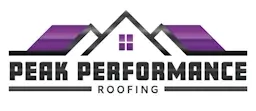
When to Consider an Insurance Claim for Roof Replacement
Determining the right moment to file an insurance claim for roof replacement can significantly impact your finances and peace of mind. Homeowners often face a conundrum: whether to handle minor damages themselves or involve their insurance company. While it’s essential to be cautious about retaining your coverage, recognizing the signs of unavoidable damage is crucial. Houston’s unpredictable weather can contribute to severe roof damage that may necessitate filing a claim with your insurer.
Peak Performance Roofing in Houston emphasizes the importance of evaluating the extent and cause of roof damage. Not every minor issue warrants a claim, but significant storm damage, such as from hail or high winds, often qualifies for insurance assistance. Consulting experienced professionals can provide valuable insights, ensuring you make an informed decision about filing a claim.
Deciphering Your Homeowners Insurance Policy
Reading through your insurance policy can feel like unraveling a complex novel with no recognizable characters. Yet, understanding your coverage is vital to navigating the insurance claim for roof replacement process effectively. Most homeowner policies cover unexpected perils like storm damage but may exclude leaks due to maintenance neglect or age deterioration.
Homeowners in Houston must discern between Actual Cash Value (ACV) and Replacement Cost Value (RCV) policies. ACV accounts for depreciation, offering a payout based on your roof’s current worth, while RCV covers the cost of replacing it with a new one. At Peak Performance Roofing, we advise our clients to carefully consider these options and select the coverage that aligns best with their needs and circumstances.
An often overlooked aspect of policy comprehension is the deductible. Knowing your out-of-pocket cost before insurance kicks in can be a determinant factor in deciding whether to file a claim. Keep these details handy to avoid surprises when they matter most.
Impacts of Multiple Insurance Claims
Filing multiple claims within a short period can set off alarm bells for insurance companies, similar to repeated visits to the principal’s office for minor infractions. It’s essential to weigh the risks of higher premiums or policy cancellation against the benefits of filing a claim.
In Houston, weather events like hurricanes or hailstorms can sometimes lead to more frequent claims. However, excessive claims can paint a homeowner as high-risk. Maintaining a balance by only filing claims for significant and non-preventable damages can help keep insurance rates manageable. Working with Peak Performance Roofing, clients are guided to make strategic decisions, often saving money in the long run.
Assessing Roof Damage Before Filing a Claim
A detailed assessment of roof damage is akin to a doctor’s diagnosis before treatment. Knowing the severity and nature of roof damage is imperative before contacting your insurer. Minor repairs such as replacing a few shingles may not justify an insurance claim, especially if the repair cost is close to your deductible.
Peak Performance Roofing offers thorough inspections to evaluate the damage accurately. This step ensures that clients understand the scope of the problem and the potential costs involved. Our expert team can provide a professional evaluation, helping homeowners decide if filing an insurance claim for roof replacement is the right move.
Identifying underlying issues, such as structural damage or leaks, is crucial. Seemingly small problems can evolve into larger issues if left unaddressed, making an early and accurate assessment beneficial in the long term.
Navigating the Insurance Claim Process
The insurance claim process can feel like a labyrinth with twists and turns at every corner. Yet, with guidance, it doesn’t have to be daunting. Filing an insurance claim for roof replacement starts with contacting your insurance provider to report the damage. Be prepared to provide detailed information and photographic evidence.
Enlisting the help of a roofing expert, such as Peak Performance Roofing, can greatly streamline the process. Professionals can advocate on your behalf, ensuring that the necessary details are communicated effectively to your insurance company. This partnership can reduce the stress associated with claims approval and maximize your chances of a successful outcome.
Regular communication with your insurer is vital. Keeping track of claim progress and understanding the next steps will expedite the replacement process, allowing you to return to normal life sooner.
Peak Performance Roofing is committed to supporting clients at every step, providing clarity and confidence in handling insurance claims efficiently.
Weighing Deductibles and Repair Costs
A meticulous evaluation of deductibles and repair costs is akin to performing a financial balancing act. Before filing an insurance claim for roof replacement, a homeowner must calculate the expense of repairs against their deductible. Often, small repairs may not warrant a claim if these costs are similar.
Many clients of Peak Performance Roofing find it beneficial to consult with our experts to determine the expected expense of repairs. This financial foresight helps avoid unnecessary claims that might not be financially beneficial in the long run. Not only does this approach minimize risk, but it also maintains a clean claims record, supporting better insurance rates.
- Take stock of all potential repair costs.
- Consider how these align with your policy’s stipulations.
- Consult professionals to assess whether minor repairs require insurance involvement.
Choosing the Right Roofing Contractor
Aligning with the right roofing contractor can be the difference between a smooth claim process and a stressful ordeal. A reputable contractor with insurance claim experience can be your best ally. Here in Houston, Peak Performance Roofing prides itself on handling these intricacies with professionalism and care.
It’s essential to choose a contractor with a track record for quality and integrity. Thoroughly examine reviews, ask for referrals, and verify credentials to ensure you’re enlisting the best expertise available. With Peak Performance Roofing, homeowners can trust that the craftsmanship will match the promise of excellent service.
Having a reliable contractor not only ensures quality repairs but also provides peace of mind throughout the insurance claim process. This partnership can safeguard your home and your investment.

What not to say to a roof insurance adjuster?
When speaking with a roof insurance adjuster, it’s crucial to stay factual and avoid making assumptions or admitting guilt. For instance, saying something like “I think it’s my fault” or “I neglected the maintenance” can negatively impact your claim. Instead, focus on presenting documented evidence and the facts as they are. At Peak Performance Roofing, we always advise homeowners to have a thorough professional assessment before speaking with the adjuster. This way, you can provide accurate details about the damage, ensuring the adjuster receives a clear picture without unintended admissions.
Why would a roof claim be denied?
A roof claim might be denied due to several reasons, the most common being lack of maintenance, the age of the roof, or damages not covered by the policy. Policies often exclude wear and tear or pre-existing damage. At Peak Performance Roofing, we stress the importance of understanding your homeowner’s insurance policy thoroughly. Make sure to keep records of regular maintenance and inspections, as this can support your claim by demonstrating that the damage was not due to neglect. Additionally, knowing the type of coverage you have, whether ACV or RCV, can prepare you for potential differences in the insurance payout.
Why should you call a roofer before your insurance company?
Contacting a roofer like Peak Performance Roofing before your insurance company can give you a complete understanding of the damage and necessary repairs. We provide detailed inspections that outline the extent of the damage and whether it might be covered by insurance. This information can be invaluable when discussing your claim with your insurance provider. By having a roofer’s input first, you’re armed with expert advice on whether filing a claim is the most beneficial step financially. This proactive approach can prevent unnecessary claims and help maintain your insurance rates.
How old may a roof be before insurance claims it’s too old?
The age at which a roof is deemed too old for coverage varies by insurance policy, but many insurers consider roofs over 20 years old as reaching the end of their lifespan for coverage purposes. At Peak Performance Roofing, we recommend regular inspections, particularly for older roofs, to ensure any issues are caught early. Insurers may opt for an Actual Cash Value payout for older roofs, which accounts for depreciation. Understanding the specifics of your policy can highlight these variables and prepare you for any claims-related decisions.
What should homeowners consider before filing a roof insurance claim?
Before filing a roof insurance claim, homeowners should assess the extent of the damage and the cost of repairs compared to their deductible. For minor damages close to or below the deductible, a claim might not be financially beneficial. At Peak Performance Roofing, we help homeowners evaluate these factors and provide a detailed estimate to compare with their deductible. Consider the impact of multiple claims on your premiums, and consult with a roofing expert to decide if a claim is the best course of action. This informed decision-making ensures that your claim history remains strategic and your home is adequately protected.
Resources
- Federal Emergency Management Agency (FEMA) – FEMA provides valuable information on disaster preparedness and recovery, including guidance on insurance claims for natural disasters.
- National Association of Home Builders (NAHB) – NAHB offers resources and tools for homeowners, including information on insurance policies and working with contractors.
- Consumer Financial Protection Bureau – The CFPB provides information on understanding insurance policies and making informed financial decisions related to home repairs.
- U.S. Department of Housing and Urban Development (HUD) – HUD offers resources for homeowners, including guidance on insurance claims and finding reputable contractors.
